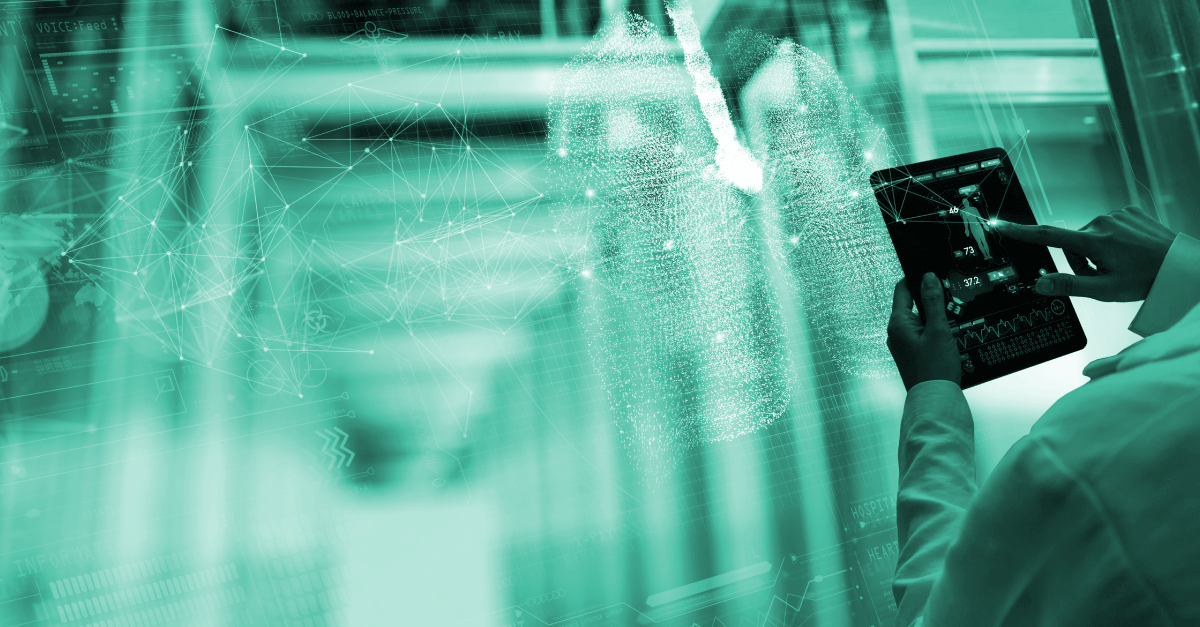Myth vs. Reality: AI will make medical decisions
October 27th, 2022

Let’s debunk the common myth that AI will make medical decisions and diagnoses in the future.
Artificial intelligence is poised to revolutionize the way we live by making it easier than ever before to perform everyday tasks. When it comes to the healthcare sector it has the potential to drastically improve patient care and lower costs. AI-assisted diagnosis systems are already being used in hospitals around the world to help professionals make better decisions —and more are set to become available in the near future.
But does this mean we can solely use AI tools and systems? Will doctors no longer be needed? In this blog, we’re going to explore how AI affects medical decision-making, what specific issues arise, and some ways in which physicians can prepare for this new era of healthcare.
What is The Role of AI in Healthcare?
AI research has led to many success stories in numerous fields, including computer vision, natural language processing, and machine learning. Healthcare represents a particularly promising application of AI, due to the large amounts of valuable patient data that are already being collected. The tools that have been developed analyze large amounts of data and perform complex analyses to determine the probability that a certain diagnosis or treatment option will yield positive results.
The use of AI tools in healthcare will allow patients to be managed in a more personal and seamless way. For example, AI could be used to track vital signs, analyze medical images, and gather information for a more accurate diagnosis and treatment plan.
These tools aren’t perfect, but they can still provide valuable insights that human clinicians don’t have access to. With more research and integration, AI could play an even larger role in patient care in the coming years.
How Is AI Currently Helping with Medical Decisions?
AI is used to automatically create a decision-support system that can assist physicians in making medical decisions. When used in healthcare, AI is designed to augment and/or automate human decision-making. Currently, these are some of the ways in which AI is being used to support medical decisions:
- Analyze medical images
- Symptom checker
- Virtual appointments
- Remote patient assistance
- Patient intake and triage
- Drug discovery platforms
- Kidney disease identification tools
- Emergency medical staff support
- Genetic medicine discovery
- Robot-assisted surgery
Benefits of AI in Medicine
There’s no doubt that AI is transforming the healthcare industry. Not only by improving efficacy and accuracy but also by making sure that the focus stays on the patient. Here are some of the benefits of using AI in healthcare:
- Positive effect on workflow by automating some tasks
- Help focus limited time on the tasks that require the most attention
- Analyze data faster than humans to help professionals come to a diagnosis
- Monitor patient health digitally
- Provide healthcare professionals with essential data rapidly
- Reduce overall costs
- Safer surgeries
- Better prevention care
Limitations of AI in Healthcare
AI has the potential to significantly improve healthcare, but there are a few challenges that demonstrate the need for humans to be continuously involved in medical decisions:
- Ensuring patient data quality and security
- Health insurers need to recognize the value AI can bring to patient management and incentivize the use of these systems.
- Training users and ensuring healthcare providers need to understand how AI works in healthcare
- Preparing patients
- Loss of personal approach
How to Prepare for AI in Hospital Care
AI will be a key player in healthcare, especially in hospital settings. Improved communication between patients, doctors, and AI systems will be essential for the successful implementation of AI in healthcare. Healthcare providers can use new tools to communicate with patients about their health status and treatment options. Both should consider how new channels like virtual visits, virtual assistants, video conferencing, and text messages will affect their communication. To prepare for AI in hospital care, doctors should understand the potential benefits, challenges, and implications AI can bring to healthcare. The most important thing is to keep an open mind—AI is here to stay, and it’s better to be ahead of the game than behind it.
The Future of AI and Medical Decision-Making
AI is already being used to improve the quality of care and lower healthcare costs, and the future of healthcare is even more exciting. AI is expected to become more personalized, which will allow doctors to provide healthcare that is more tailored to each patient’s needs. Furthermore, with the increased use of wearable and mobile health technologies, AI will be able to analyze and make sense of large amounts of data.
That being said, the future requires teamwork. It is essential for AI and humans to work in unison. Artificial intelligence solutions will focus on creating more efficiency and accuracy, while healthcare providers will use their expertise and personal touch. The future involves one complementing the other seamlessly to reach the best possible medical decisions for patients.
Ready to see what we can do for you?
In the right hands, artificial intelligence can take human performance to a hitherto unimaginable level. Are you ready for evolution?




